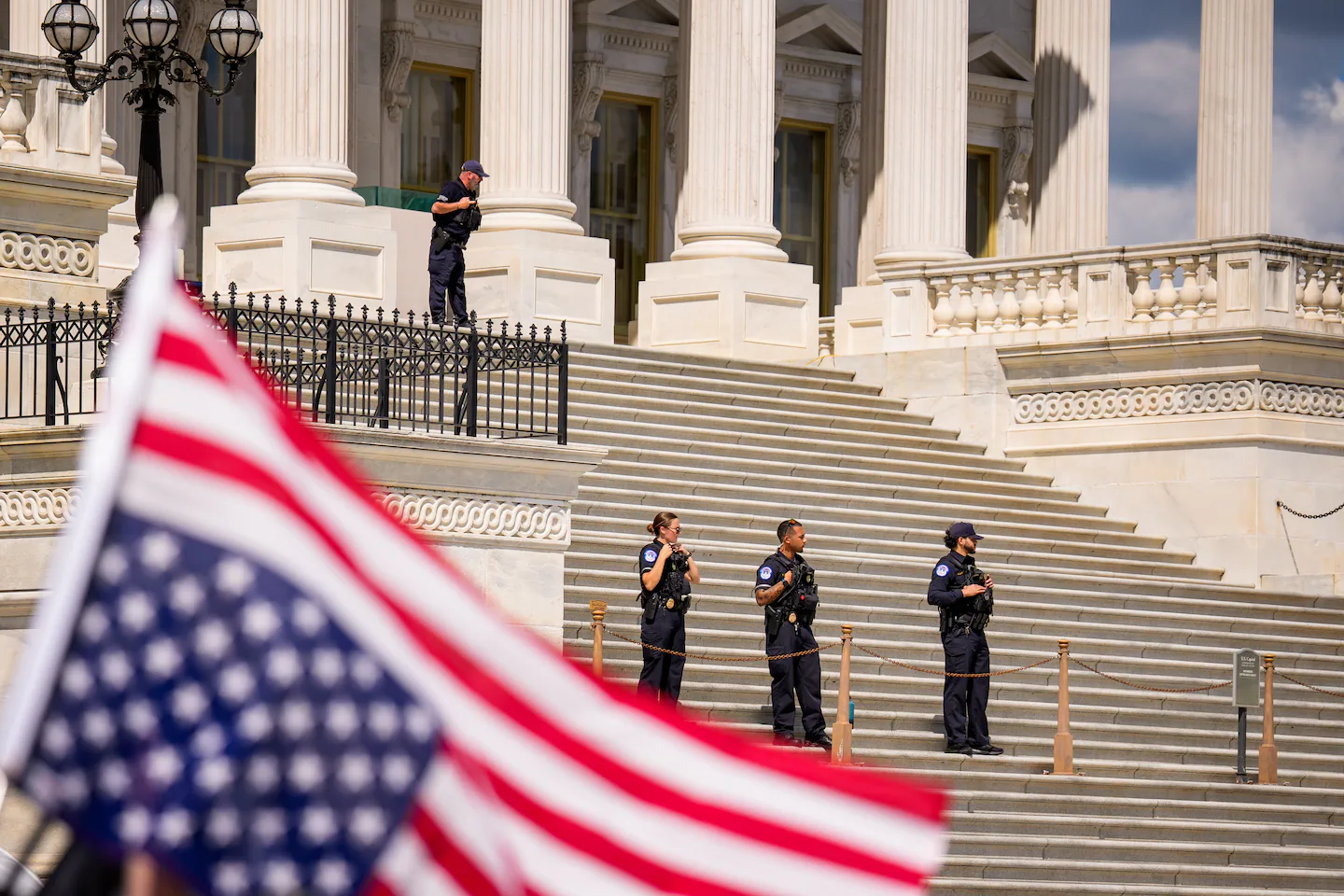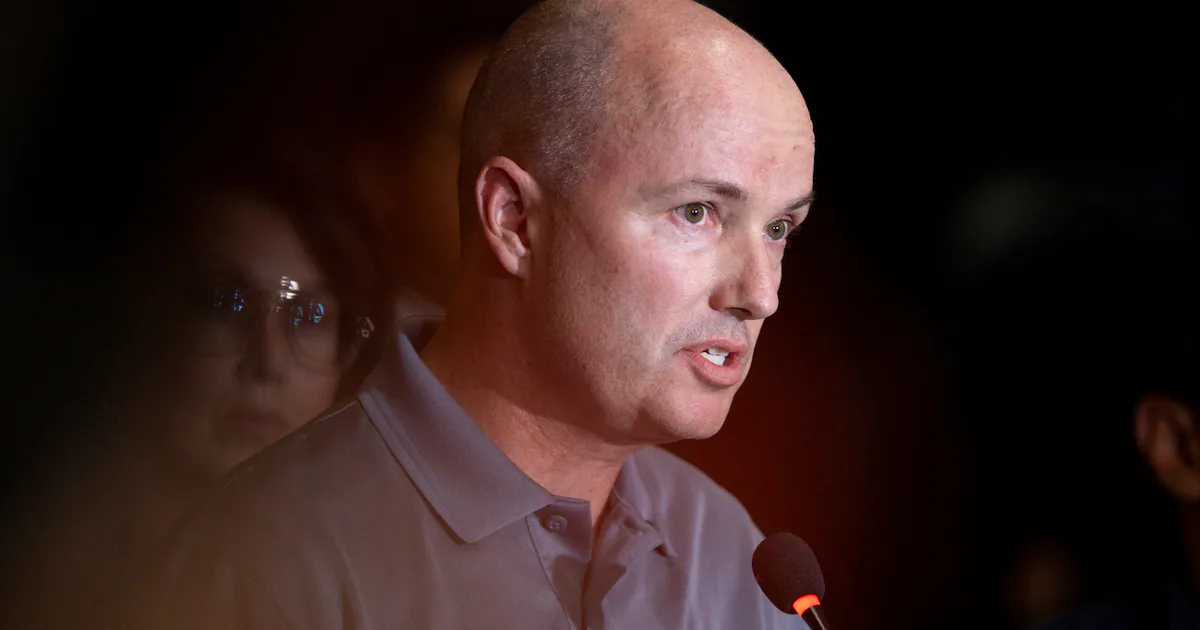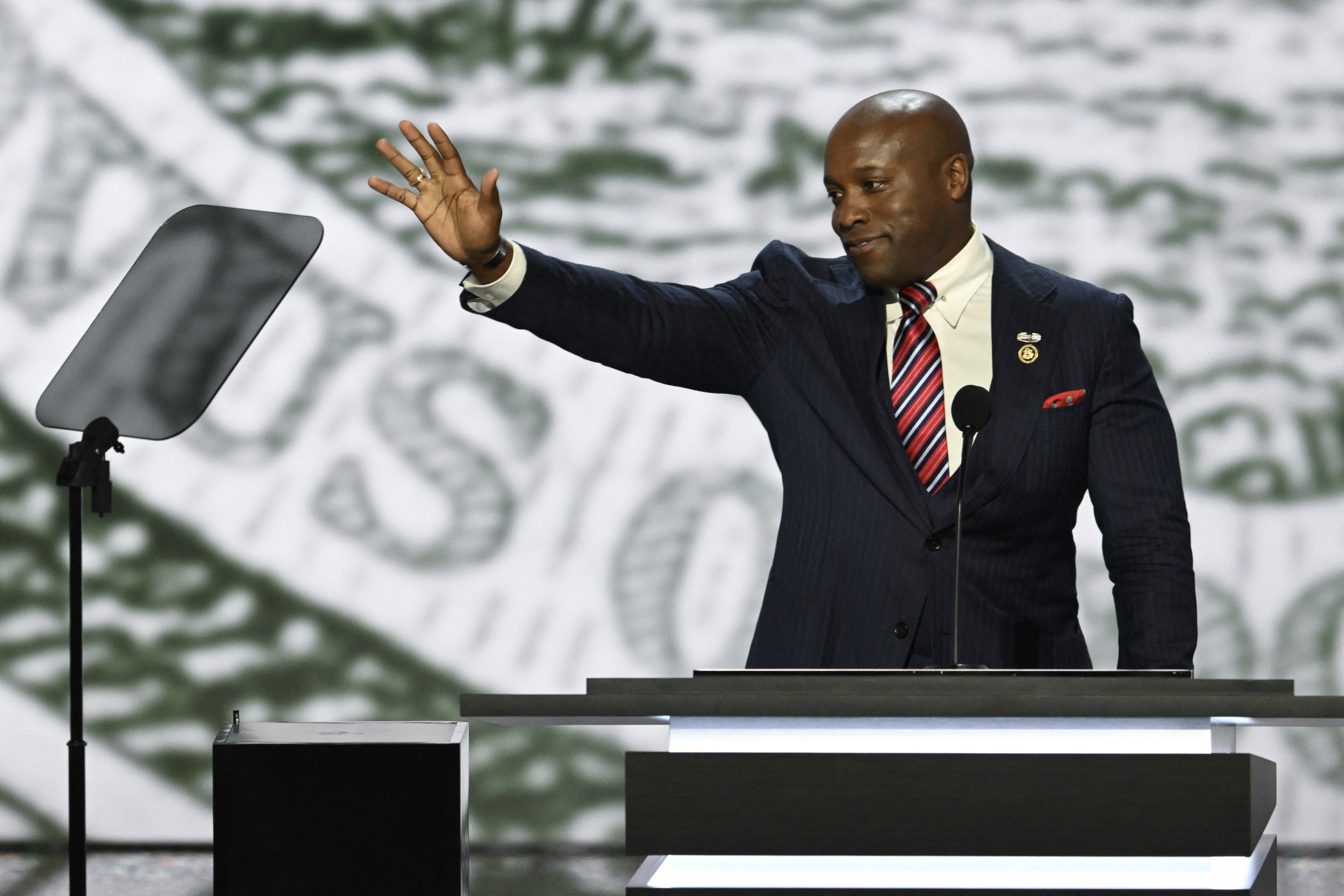
While the volume of threats were unusual, Moulton said, their violent nature was not.
“It’s certainly not the first time that I’ve gotten death threats,” he told the Globe, “but it’s pretty horrific in the wake of what happened.”
It’s also part of being in Congress in a bitterly divided nation where the assassination of Kirk, a young conservative activist, was just the latest instance of political violence. In the aftermath, democracy experts said, elected officials could be pushed deeper into a secure bubble, making it harder for average Americans to interact with them.
“It’s a real challenge,” said Larry Diamond, a senior fellow at the conservative-leaning Hoover Institution think tank. “For a while, I think there’s going to be a reduction in more spontaneous, and say, unfiltered or unmanaged activities. And so we’re all going to be kind of groping our way to a new set of expectations.”
Lawmakers already were shaken.
In June, a Democratic Minnesota state representative, Melissa Hortman, and her husband were fatally shot in their house this summer. Just a few months earlier, a man set fire to the Pennsylvania governor’s mansion.
“I’ve been talking with a lot of them…and trying to calm the nerves, to assure them that we will make certain that everyone has the level of security that’s necessary,” House Speaker Mike Johnson, a Louisiana Republican, told CBS’s “Face the Nation” several days after the Kirk shooting.
The White House has requested an additional $58 million for security for the executive and judicial branches. And House Republican leaders have proposed bumping up security spending for members of Congress by $30 million.
Lawmakers also are re-assessing how they interact with the public. The move comes after most House Republicans stopped holding town hall meetings this year to avoid people angry about Trump administration policies.
“Everybody’s rethinking about what type of events they’re going to do and where they’re going to do them and what the security apparatus is,” said Florida Senator Rick Scott, a Republican.
But there’s a potential price to the tighter security.
Kirk’s assassination and the other attacks “undermine our collective safety but also our democracy,” causing elected officials and average Americans to fear expressing their views, said Omar Noureldin, senior vice president, policy and litigation strategy, at Common Cause, a nonpartisan public interest organization.
“The more isolated members of Congress and senators become, I think the less responsive they are,” he said. “They then tend to exist in their mutually reinforcing ecosystems of political insiders, the wealthy, the well-connected.”
Lawmakers said they are trying to balance security with accessibility.
“A key piece of being a member of Congress is being able to talk freely, to hold town halls, to hold hearings, to meet people in coffee shops,” said Representative Katherine Clark of Revere, the second-ranking House Democrat. “We want that connection with the American people and that discussion with our constituents to be able to continue and have members be safe. So we are looking for increased security because we are seeing threats going up.”
Many lawmakers still remember how then-Representative Gabby Giffords was shot in the head on a Saturday morning in 2011 while making herself available to constituents at a “Congress On Your Corner” event outside a Safeway supermarket in Tucson, Ariz. Six people were killed and 12 other people were wounded in the shooting.
Giffords, a Democrat, sustained a severe brain injury that made it difficult for her to speak and walk. She resigned from Congress about a year later and now leads a gun violence prevention non-profit organization.
In 2017, a gunman opened fire at a practice of the congressional Republicans’ baseball team in a Washington suburb, critically wounding Representative Steve Scalise, a Louisiana Republican, and injuring three others. Capitol Police officers providing security for him were credited with saving lives by shooting the gunman. Scalise recovered and now serves as House majority leader.
Even fresher in the minds of lawmakers is the attack on the US Capitol by Trump supporters on Jan. 6, 2021, when rioters violently assaulted police officers and chanted “Hang Mike Pence” as they sought the Republican vice president and members of Congress preparing to certify the 2020 election.
Then in late 2022, Paul Pelosi, the husband of then-Democratic House Speaker Nancy Pelosi, was severely beaten with a hammer by an attacker searching for her in their San Francisco home. And Trump narrowly escaped an assassin’s bullet in the summer of 2024.
While the United States experienced assassinations of major political and civil rights figures in the 1960s, the threat is more widespread now, Diamond said.
“I can’t remember a time when there was so much collective, shared, diffused plausible concern about assassination and such an accumulation of death threats against a large number of members of Congress,” said Diamond, who lived through the assassination of President John F. Kennedy in 1963.
Representative Richard Neal, a Springfield Democrat who has served since 1989, said the boundaries of politics have changed in recent years, with protestors demonstrating outside the homes of lawmakers, including his own. That’s led to a reassessment of how members of Congress engage with the public.
“You look back at the system that I came through it was the door-knocking, it was the coffee hours, it was small gatherings and bigger gatherings and all of that,” Neal said. “But now I think that for a lot of people they’re going to do a recalibration.”
Neal said he stopped doing in-person town hall meetings several years ago because they tended only to draw partisans with “an axe to grind.” He’s found telephone town halls to be more effective because they don’t turn into a political spectacle. .
Jonathan Katz, a fellow in governance studies at the center-left Brookings Institution think tank, said polls have shown Americans think more highly of their local officials than Congress and that’s partly because of the higher level of engagement.
“It’s incredibly valuable to sit down with constituents directly and I do think members of Congress want to do that,” he said. “But in an atmosphere of potential threats, it will make it more difficult to have those direct engagements.”
In June, the League of Women Voters published a blog post titled, “Your Members of Congress Must Attend Town Halls: Turn Up the Heat.” The author, Jeanette Senecal, the organization’s chief of civic learning and impact, still believes town halls are important. But after the recent political violence, elected officials should “explore creative alternatives,” she said.
“Virtual town halls and secure phone-in sessions are practical solutions that enable meaningful dialogue while prioritizing everyone’s safety,” Senecal said in a statement to the Globe. “By embracing options like these and others, government officials can ensure civic participation remains accessible and constructive, even in challenging times.”
Moulton, who has held three in-person town hall meetings this year, said he plans to continue doing them. Local police have increased their presence at the events. And he’s also strengthened the security around himself and his family.
“If people are afraid to tell the truth because they’re worried they’ll get death threats, like I did when I just shared some simple truths…it’s not going to muzzle me,” he said. “But it certainly risks muzzling other participants in our democracy, whether they’re fellow citizens or elected officials.“
Tal Kopan of the Globe staff contributed to this report.



